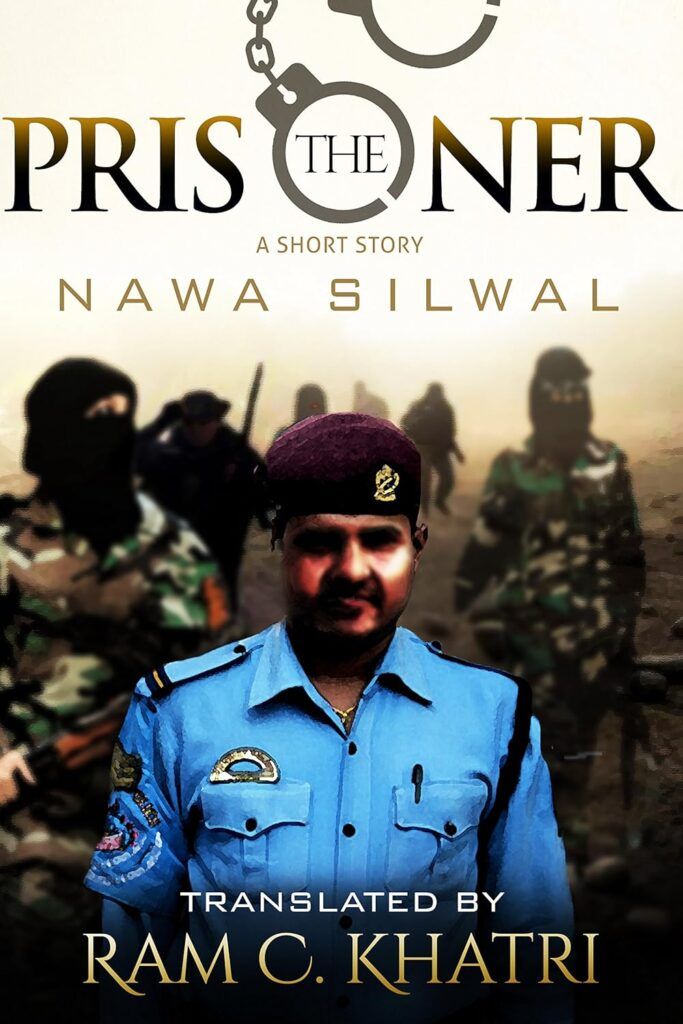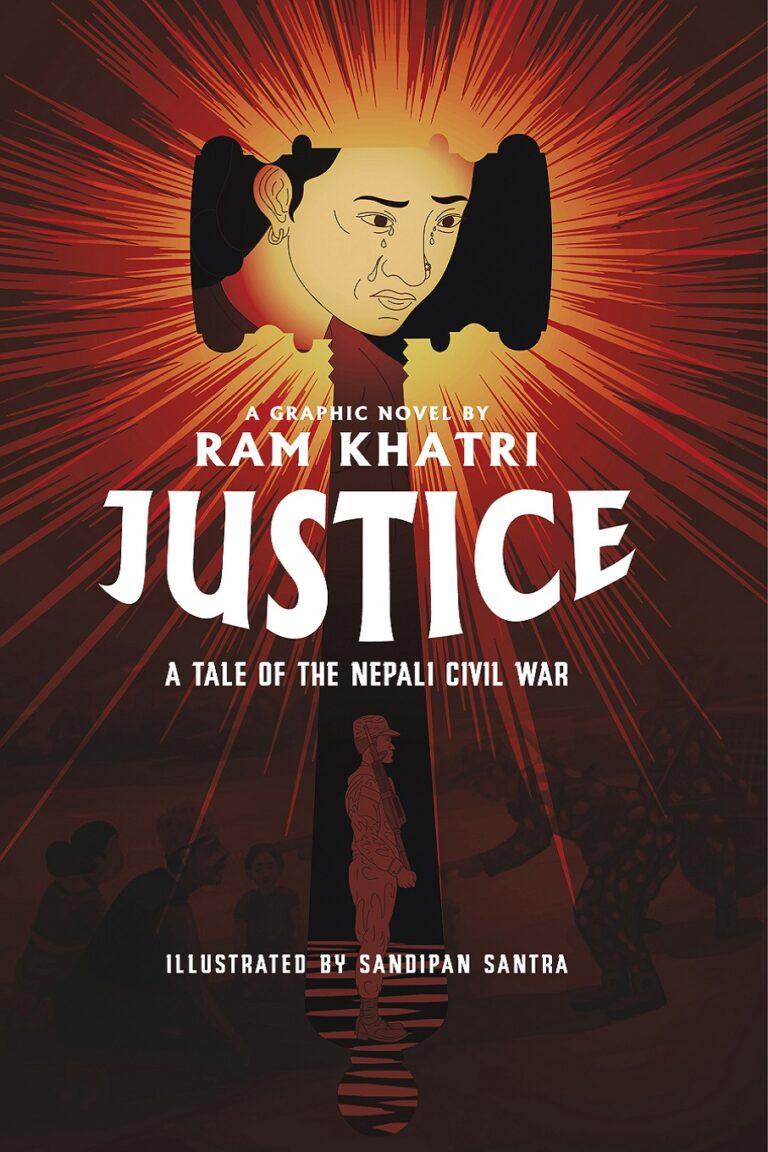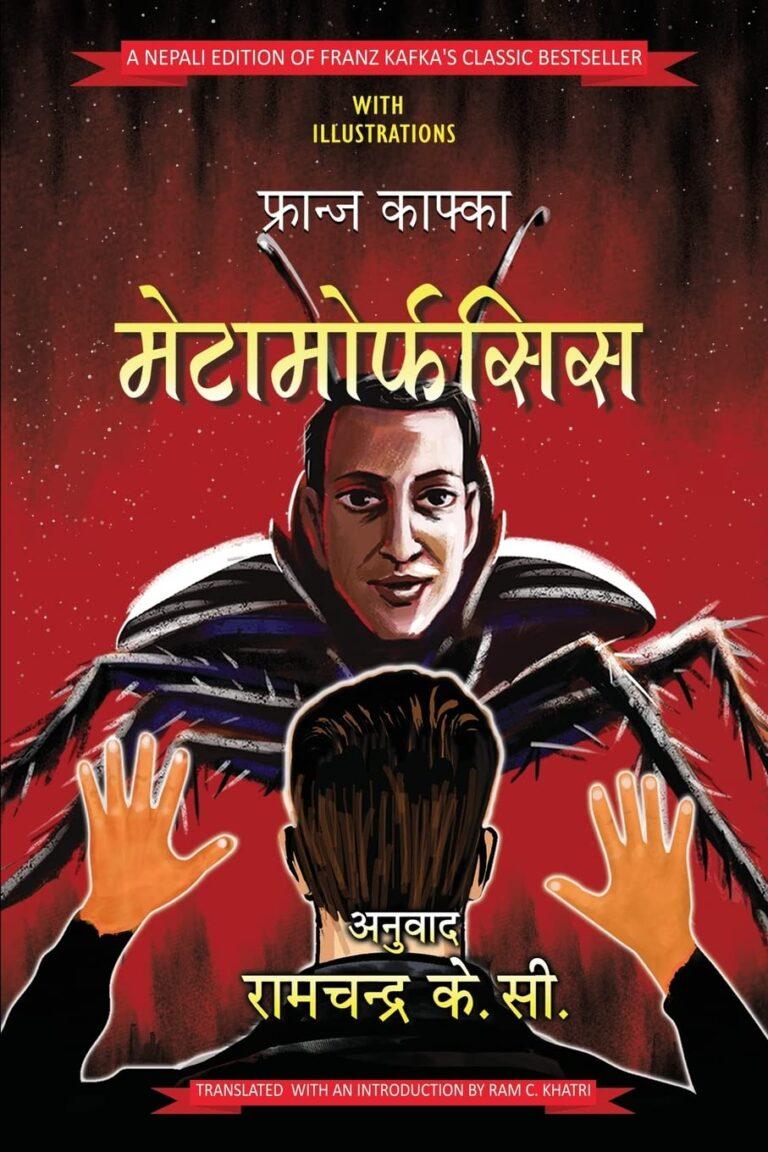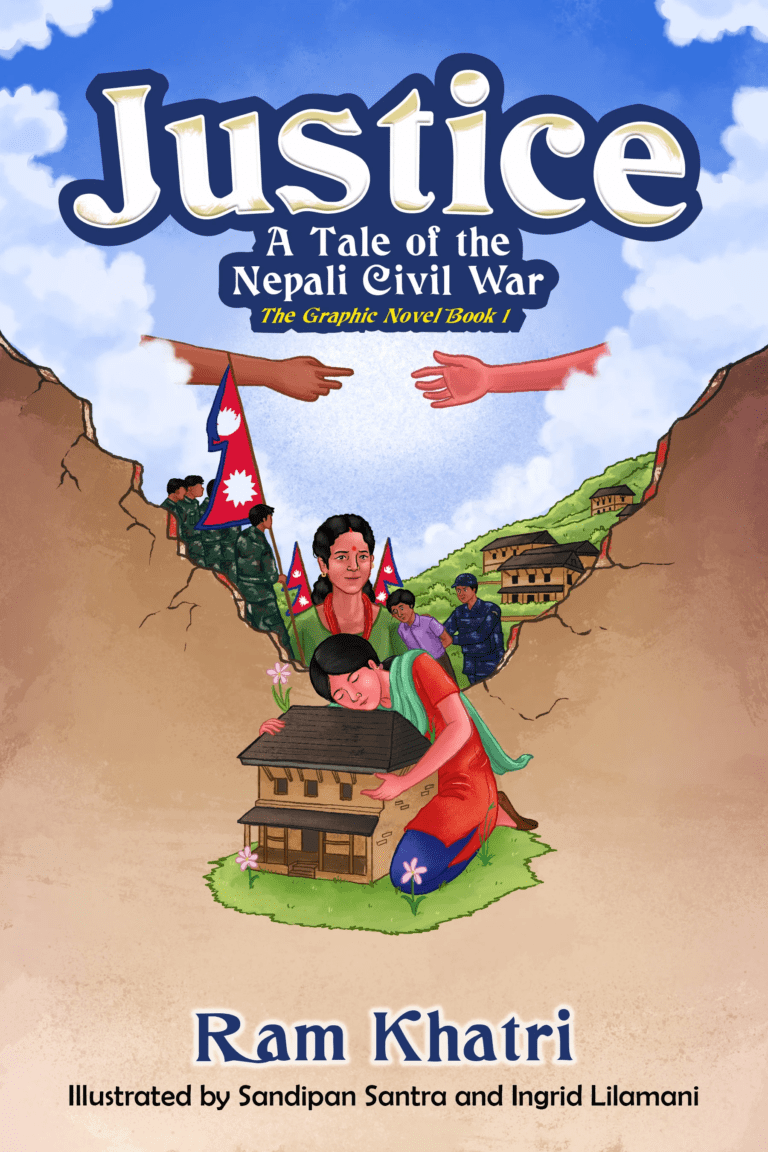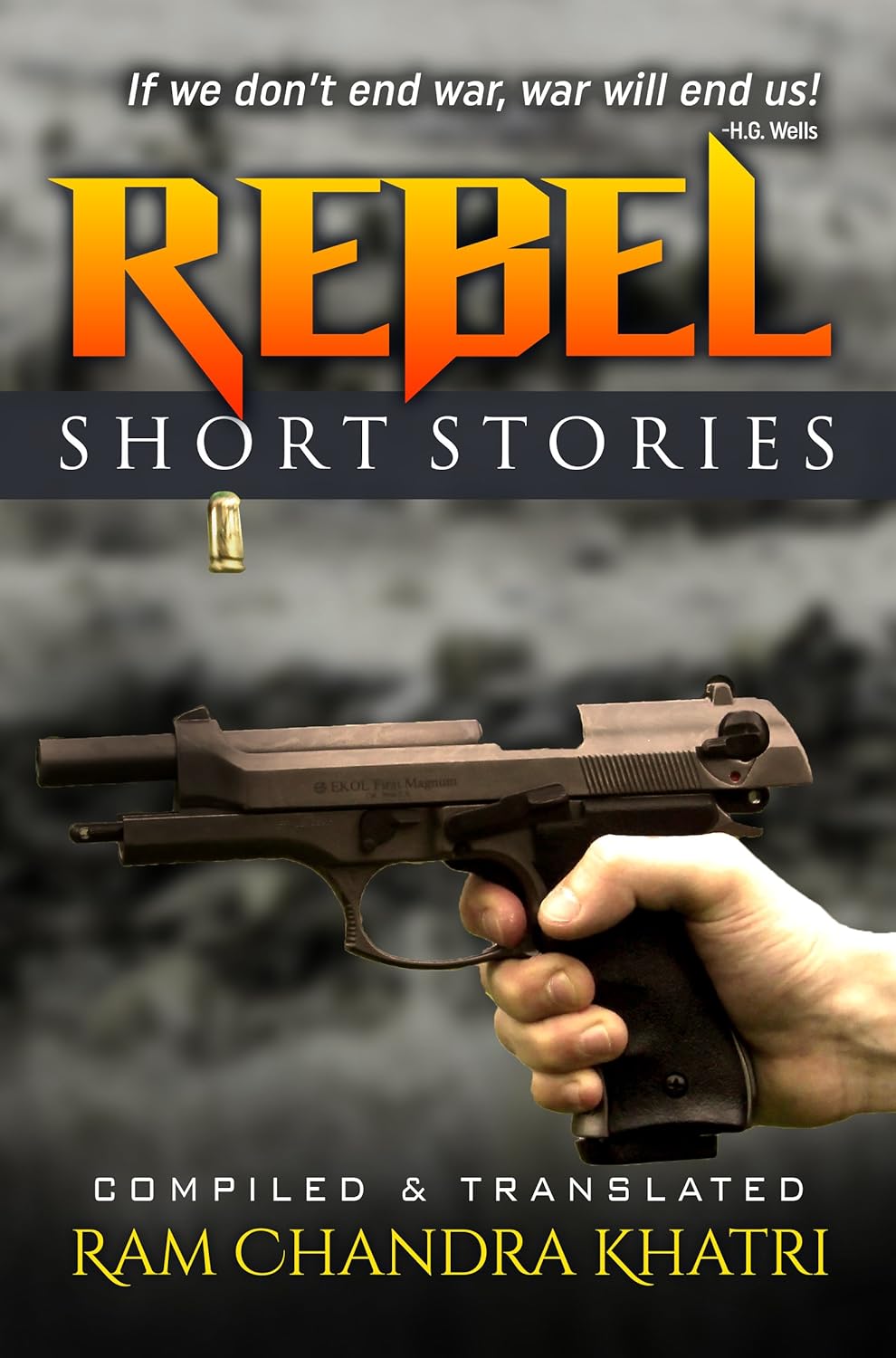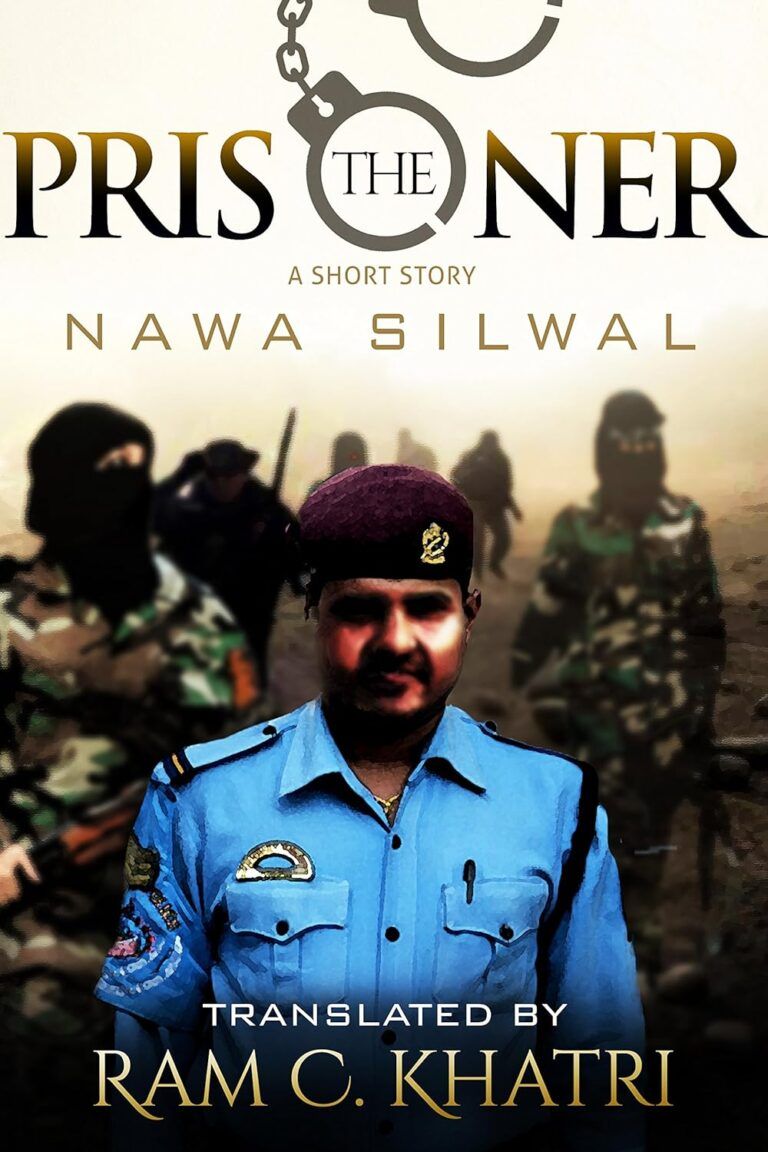‘The Prisoner’ was taken from the author’s Nepali collection of short stories Aasthako Pahad, and was later translated and compiled into Rebel: Short Stories from Nepal. The heartwarming story presents the piteous condition of a soldier who has fallen into the hands of rebels and protests the war through a striking monologue of an old woman.
Surprise ending of the story raises hope for humanity.
Nawa Silwal was involved for long in law enforcement as a police officer in Nepal and has published a dozen books on law-and-order management, human rights, traffic management, crime investigation, scientific management, and air pollution.
Nawa Silwal is involved in law enforcement as a police officer in Nepal. He has published a dozen books on law-and-order management, human rights, traffic management, crime investigation, scientific management, and air pollution. As a staff member of the United Nations Organization, Silwal has traveled to Mozambique, Ivory Coast, Liberia, Timor and other countries in western and southern Africa. In addition to this, he is involved in several literary creations, and his two collections of short stories have been published. They are Aasthako Pahad (The Mountain of Faith, 2006), a collection of twenty short stories; and Sabdabihin Aawajharu (The Sounds without Words, 2010). In his stories, Silwal presents the absurd side of human life and advocates humanity. For this purpose, he foregrounds the plight of security personnel, rebels, ordinary people, and the injured victims of the Maoist–Government war. “The stories of Nawal Silwal,” writes Prof. Mohanraj Sharma, “are capable of drawing a realistic picture of present day absurdities.” Silwal successfully weaves the real characters of society into his stories when he writes, in an effort to share his feelings and experiences. Taken from his collection Aasthako Pahad, the following story, Kaidi (The Prisoner), presents the piteous condition of a soldier who has fallen into the hands of rebels. The story protests war through a striking monologue of an old woman. The surprise ending raises hope for humanity.
Publication Date: 2016
Language: English
Original Language: Nepali
Print Length: 13 pages
Genre/category: Short story, translation, world literature
The sounds of bombs and bullets had unleashed terror on the bank of the Gandaki River. The number of people being killed was growing with the deepening night. The rebels had intensified their attack on the security forces. The silence and darkness of the night covered the land, filling it with fear. It was a war of one Nepali killing another. The war, which led to terrible explosions and demonstrated the lack of value of human life, seemed in one sense bound to eliminate human civilization in the name of freedom. Such a war is fought in the place where the importance of humanity is minimal, the meaning of human life is nil, and where such annihilations take place every now and then.
The rebels took over the town with their nightlong attack. As the dawn turned night into day, streets and fields were awash with corpses. The still smoldering police offices and government buildings emanated fear.
“Sir, I’ve arrested a government soldier.” A rebel reported to his commander.
“All right. Good! Bring him here!” The commander ordered.
The rebels tied the soldier’s hands and led him towards the jungle. He looked somber. The fresh recollection of the night’s clash, and of his friends falling prey to bombs and bullets shook his heart. He was not happy, despite being unharmed from the night’s fierce attack. The event had a deadening effect on him; his senses had been numbed. He had lost his sense of existence; with no hope for the future, his complete being had been narrowed into the role of a mere prisoner.
Following the rebel’s orders, the prisoner paused at times while walking. He knew nothing about his journey or its destination. He was now a mere captive who waited for the rebel’s small decisions.
The sun rose. There was no movement in the middle of the jungle. The sense of death was pervasive. Birds and animals seemed not to exist. The prisoner was journeying towards his graveyard.
The commander called his two rebels towards him and muttered something. They nodded their heads and came back.
📖 Download FREE sample or consider purchasing to continue reading! 📖


